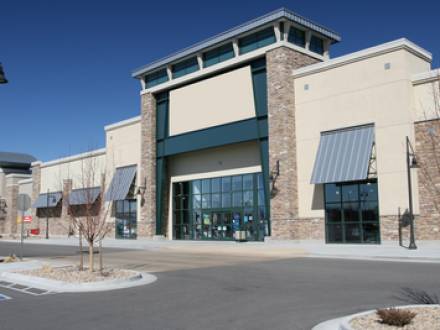What Should Landlords Know About Commercial Ground Leases?
Posted on April 29, 2025 in Real Estate
 Picture that big box Walmart, or the Macy’s at the mall. You might expect these companies to have long-term leases with their landlords, but did you know that their leases are sometimes for periods that are longer than many people’s lifetimes? These big box stores are likely to lease the property based on a unique type of lease called a ground or land lease. This type of lease is different from your typical commercial lease. It is a long-term lease that can last for anywhere from 50 to 99 years. Ground leases are typically used in commercial real estate, particularly by big box stores and franchises, although beachfront homes and mobile homes may also be rented under this type of lease. An experienced Greenwich, CT commercial real estate attorney can advise tenants and landlords on important considerations for commercial ground leases.
Picture that big box Walmart, or the Macy’s at the mall. You might expect these companies to have long-term leases with their landlords, but did you know that their leases are sometimes for periods that are longer than many people’s lifetimes? These big box stores are likely to lease the property based on a unique type of lease called a ground or land lease. This type of lease is different from your typical commercial lease. It is a long-term lease that can last for anywhere from 50 to 99 years. Ground leases are typically used in commercial real estate, particularly by big box stores and franchises, although beachfront homes and mobile homes may also be rented under this type of lease. An experienced Greenwich, CT commercial real estate attorney can advise tenants and landlords on important considerations for commercial ground leases.
What Are Commercial Ground Leases?
Under a commercial ground lease, a landlord rents the land for a period of between 50 to 99 years. During that time, the tenant can develop the property, and those improvements will usually return to the landlord along with the land at the end of the lease term. In a ground lease, a tenant is often responsible for paying all the bills on the land, including taxes, insurance, any financing, and of course the rent.
What Are the Advantages and Disadvantages of a Ground Lease for the Landlord?
With a ground lease, a landlord owns the land and can receive a steady income for a long period, which provides stability. They also avoid having to pay capital gains taxes or worrying about generating income or revenue from the land or having to pay expenses. These are some significant advantages.
On the other hand, if the lease agreement does not contain the right provisions, the landlord could lose control of a tenant who makes excessive or unwelcome improvements on the land. Some contracts specifically forbid the landlord from denying any land improvements, which can be problematic. A landlord might also lose the chance to earn a higher income if rent values increase significantly during the long lease period.
Call a Greenwich, CT Commercial Real Estate Lawyer
Whether you are leasing, buying, or selling, commercial real estate is an entirely different sphere from residential real estate and requires a great deal of business know-how. If you are seeking qualified commercial real estate representation, the team of experienced New York Metro Area commercial real estate attorneys can advise you. With over 75 years in business, Mandelbaum Barrett PC can be trusted to handle your commercial real estate legal needs. Call our office at 203-661-6000 to schedule a free consultation.


 Picture that big box Walmart, or the Macy’s at the mall. You might expect these companies to have long-term leases with their landlords, but did you know that their leases are sometimes for periods that are longer than many people’s lifetimes? These big box stores are likely to lease the property based on a unique type of lease called a ground or land lease. This type of lease is different from your typical commercial lease. It is a long-term lease that can last for anywhere from 50 to 99 years. Ground leases are typically used in commercial real estate, particularly by big box stores and franchises, although beachfront homes and mobile homes may also be rented under this type of lease. An experienced Greenwich, CT
Picture that big box Walmart, or the Macy’s at the mall. You might expect these companies to have long-term leases with their landlords, but did you know that their leases are sometimes for periods that are longer than many people’s lifetimes? These big box stores are likely to lease the property based on a unique type of lease called a ground or land lease. This type of lease is different from your typical commercial lease. It is a long-term lease that can last for anywhere from 50 to 99 years. Ground leases are typically used in commercial real estate, particularly by big box stores and franchises, although beachfront homes and mobile homes may also be rented under this type of lease. An experienced Greenwich, CT






